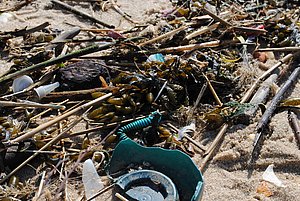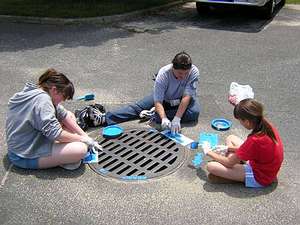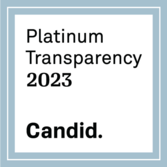Non-point Source or "Pointless" Pollution
What is Non-point Source Pollution?
Non-point source or "pointless" pollution is the number one cause of coastal water pollution. Pointless pollution is caused by many sources, including runoff of litter, pet waste, fertilizers, pesticides and sediments, leaky septic systems, and faulty sewage and stormwater systems.
Pointless pollution is harmful to the coastal ecosystem and to public health. It:
- contaminates drinking water and waterways,
- closes beaches and shellfish beds,
- causes algal blooms which can lead to fish kills,
- contaminates sediments in waterways,
- adversely affects the life cycles of aquatic organisms,
- can lead to public health risks and fish consumption advisories for humans, and
- endangers wildlife through ingestion of and entanglement with litter.
Though people and their everyday habits are often the source of pointless pollution, we can easily become the solution. Clean Ocean Action educates citizens about what can be done to stop pointless pollution and keep New Jersey's waters swim-able, fish-able, and beautiful.
Visible Signs of Non-point Source Pollution
During the 2022 Clean Ocean Action Beach Sweeps, over 8,000 volunteers picked up 376,969 items - including 52,512 plastic bottle caps & lids. The data collected by volunteers at the Sweeps shows that plastic items, in general, made up 73.23% of the recovered debris. Over the years, COA has observed many trends with various items of litter. For example, during the COVID-19 pandemic, we added Personal Protective Equipment (PPE) to the data card due to the increased use of disposable and reusable face masks, as well as disposable gloves. We saw a dramatic decrease in all three items last year, specifically with disposable face masks (volunteers collected 3,080 in 2021 vs. 1,851 in 2022). Additionally, since the implementation of the Single-Use Waste Reduction Act in May of 2022, we are thrilled to report that plastic shopping bags, straws, and foam takeout containers have each decreased by over 35%! The fight against pollution does not stop here. Items are still being littered in the streets that eventually wash directly down storm drains and into waterways. These waterways eventually carry debris downstream, and into the ocean. Daily tides and wave action wash the litter back up onto our beaches.

How can I help?
There are many activities that citizens can participate in to reduce pointless pollution. Visit the Education Programs section of our website for more information on Clean Ocean Action's programs including Storm Drain Stenciling, Beach Sweeps, Group & School Presentations, the Student Summit, and our 10 Tips Series of educational resources.

A group of volunteers stencil an anti-littering message on a storm drain.

